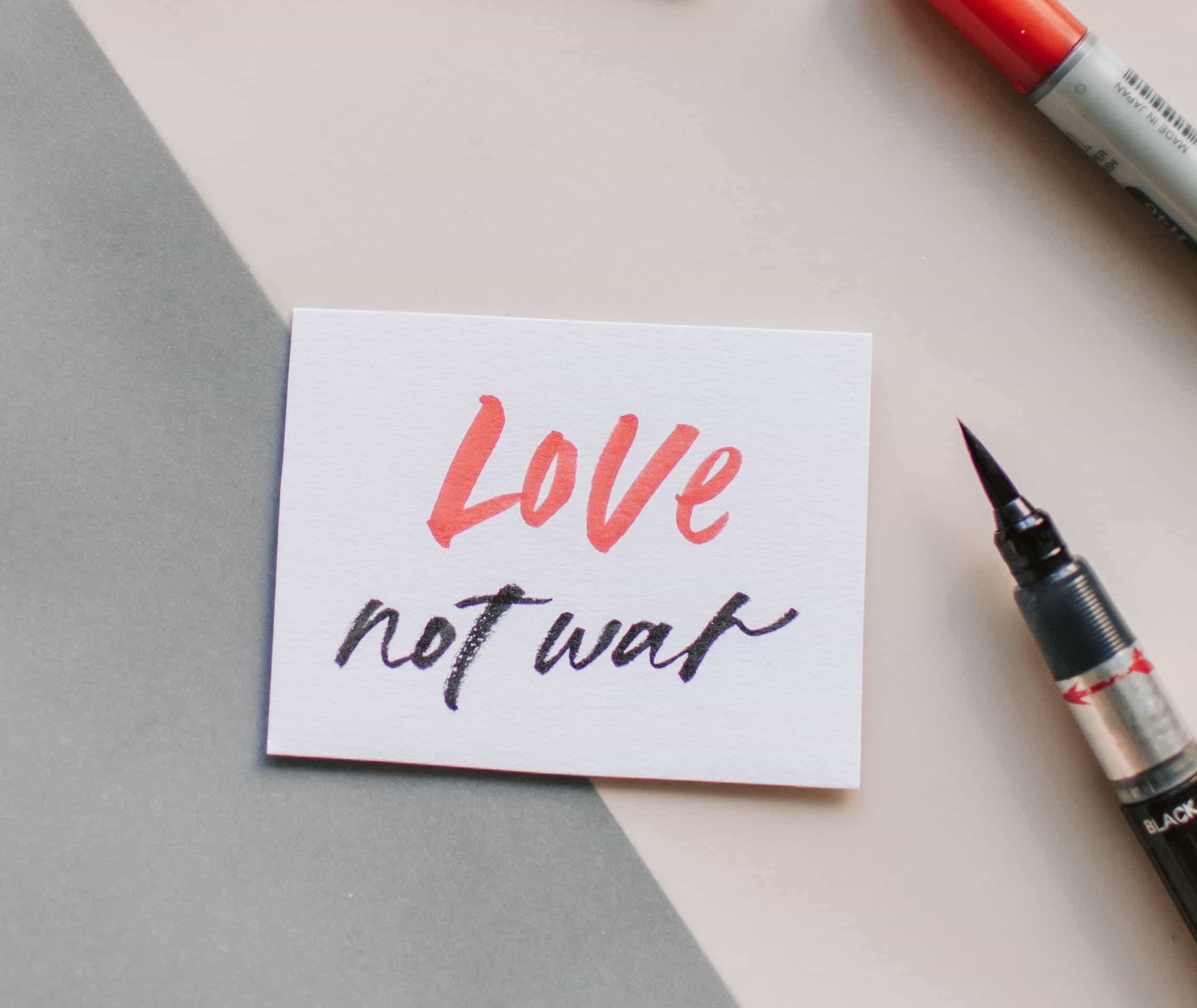Why did Allah not grant the dua of the Prophet (peace be on him) for his ummah to be united?

On the authority of Sa’d bin Abi Waqqas (may Allah be pleased with him) that one day Allah’s Messenger (peace be on him) came from Al-‘Aliyah: a high place in Madinah. He passed by the mosque of Banu Mu’awiyah, went in and observed two rak’ahs there and we also observed prayer along with him (peace be upon him) and then he prolonged his dua, he made a very long supplication (peace be upon him) to his Lord. He then came back to us and said:
I asked my Lord three things and He has granted me two but has withheld one. I asked my Lord that my ummah should not be destroyed because of prevailing famine and He granted this to me. And I asked my Lord, that my ummah should not be destroyed by drowning (by deluge) and He granted this to me. And I asked my Lord that my ummah not to be destroyed by fighting among themselves, but He did not grant it to me (peace be upon him). (Muslim).
The bad news is that the ummah will destroy itself by infighting. Though the Prophet (peace be upon him) was keen to protect his ummah from their enemies and itself, Allah Almighty refused to grant them protection from their own selves.
Why didn’t Allah protect the ummah from itself?
When I read this narration, I was greatly puzzled. Allah Almighty granted the Prophet (peace be upon him) two of his wishes, but not the third. (In some narrations it is three out of four). Why?
It would have been very easy for Allah to grant this as well, so why did He refuse? For a long time, I couldn’t figure out the answer, until eventually I got it.
The first dua is for provision. This means that the ummah is given sufficient food for its survival and it is one of Allah’s attributes is that He is the Provider, Ar-Razzaq: the One who gives sustenance. He granted this to the Prophet (peace be upon him), that the ummah will not die out due to prevailing famine.
The second dua is for the survival of the ummah unlike the ummah of Nuh (peace be on him) who were destroyed by the flood.
Sustenance is from Allah, however, the third dua to be protected from internal fighting is an issue of discipline. It is not Allah’s job, it is ours. It is our obligation to follow Allah’s commands and get on with each other, as Allah Almighty says in the Quran:
Wa’tasimou bi Habli LLahi jamee’anw wa la tafar raqou
Hold fast to the rope of Allah, and do not be disunited. (3:103)
This is the command. Allah will not do this on our behalf. He commanded us to be united. You cannot delegate this to someone else. You can’t say, ‘I’m a bit busy my son, pray Dhuhr on my behalf today’. This is an individual obligation.
There is also a collective obligation for the ummah to be united. This is why Allah did not grant this to the Prophet (peace be upon him), because this is our obligation and accordingly we work towards that.
Uniting the ummah
We have to have programmes and systems, and education (tarbiyah) and literature in place which promotes and establishes this unity, which brings our hearts, minds and people together as one people.
We have to work towards the unity of the ummah. Not just by lip service, but by actively spreading love, and goodness. This is why we have so many rulings in the Quran and the sunnah which protect the wellbeing of the ummah.
For instance, we are not allowed to do backbite because it creates divisions and distrust in relationships. We are not allowed to break ties of kinship because it breaks down the fabric of the family, the community and ultimately the whole ummah.
When we follow rulings we come together as a united ummah, harmonious, caring and loving ummah. When we do not follow the commands of Allah Almighty, then the ummah will not be united. Instead it will be full of animosity and hatred and infighting. This group against that group, this mosque against that mosque, this organisation against that organisation, then the ummah will never be victorious.
Working as one body
If we want victory in dunya and akhirah, we have to come together. This is why the Prophet (peace be upon him), in another narration described the ummah like one body in their compassion, love and care and their contribution and support of one another:
So the example of the believers amongst themselves in their compassion and aid and support to one another is like one body.
With all their different strengths and functions, they are like different limbs, who are not divided by their differences but work together as one body.
Numan bin Bashir narrated that Allah’s Messenger (peace be on him) said:
You see the believers as regards their being merciful among themselves and showing love among themselves and being kind, resembling one body, so that, if any part of the body is not well then the whole body shares the sleeplessness (insomnia) and fever with it. (Bukhari)
How can we be one body?
We need to think more about this. How can we work towards spreading more love, spreading good examples and be better people?
The Prophet (peace be upon him) wanted his ummah to be united but Allah Almighty informed us that it is not His job to unite us, it is ours. As if He is saying, ‘I will not grant you this. You have to work to earn this. There are things I can grant you like your sustenance (rizq). I have guaranteed this for you but there are some things I cannot grant you, you have to work to get it. You have to earn it’.
We cannot take unity for granted
The unity of the ummah is not something we can take for granted. It will not happen by itself without any effort. We have to seek through our efforts. We have to follow the commands of Allah Almighty from the Quran and the Sunnah.
Otherwise, we follow our whims and desires, anxieties, our likings, and the whispers of the shaytan and we pull in different directions, chop ourselves into different sects, and different groups. There is nothing wrong with having different groups, if they cooperate with each other, it is not acceptable at all to be different groups working against each other. This was what the Prophet (peace be upon him) was afraid of.
Dua alone is not enough
The Prophet (peace be upon him), in this hadith, has told us that we need to be careful. And that though we should pray to Allah Almighty for our unity, dua for it is not enough. Even though Allah Almighty loved him so much (peace be upon him), He did not grant him this. It needs action from the ummah.
What brings hearts together
Unity requires will, sincerity, time, effort and action. Dua alone is not enough. We have to follow the commands of Allah Almighty, control our anger, control our tongue, say what is good, do what is good, wish for others what we wish for our self, be grateful to those who have been good to you. These things bring hearts together. Exchange gifts because it spreads love.
Justly reconciling two people is charity. Helping a man with his animal and lifting his luggage upon it is charity. A kind word is charity. (Muslim)
Smiling at the face of your brother is a charity. (Tirmidhi)
O people! Spread (the greeting of) Salam, feed others, uphold the ties of kinship, and pray during the night when people are sleeping, and you will enter Paradise with Salam. (Ibn Majah)
All these sorts of things, if we were to do them, naturally increase and foster love in the community, within the same family, within the same community, within the same city. This is what will happen, if we were to follow the commands of Allah Almighty and His Messenger (peace be upon him).
Beginning of the cure
Without these our ummah continues to suffer from our disunity and we will be weak. Although 1.7 billion is not a small number, it’s a huge number, but as the Prophet (peace be upon him) said, despite our numbers, we are like the froth of the sea. We lack substance and strength.
It’s a long way, but nevertheless it’s the beginning of the cure to know that you are ill, to acknowledge it. Once you identify the problem, you can work towards fixing it. God willing.
As the Prophet (peace be upon him) was begging Allah in a long supplication in his lengthy salah until his companions said, ‘You’ve never prayed this salah, we haven’t seen you praying such salah before’. So he said, ‘Yes, I was asking Allah for this, this, this, (peace be upon him)’.
We too should ask Allah for this and work towards it and God willing we will be granted it, if we have the intention and make the effort.
I ask Allah Almighty, to enable us to be amongst those whom He accepts and supports and loves and brings together. Ameen.
Delivered by Shaykh Haytham Tamim in his Online Hadith Qudsi class. Transcribed by Rose Swinburn.
Recommended Posts

The truth is more powerful than lies
July 26, 2024

Does a bride’s wali have to be Muslim?
July 25, 2024


